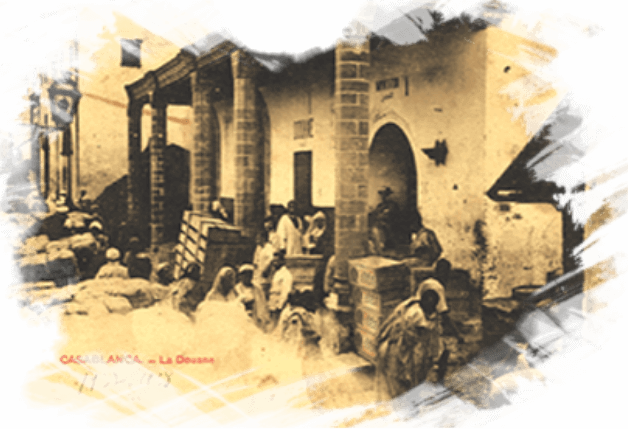FREE UK SHIPPING ON ORDERS ABOVE £15
3 FREE SAMPLES ON EACH ORDER

DELIVERY TO OVER 50 COUNTRIES
FREE UK SHIPPING ON ORDERS ABOVE £15
3 FREE SAMPLES ON EACH ORDER

DELIVERY TO OVER 50 COUNTRIES
3 CAMPIONI GRATUITI SU OGNI ORDINE

CONSEGNA ESPRESSA IN ITALIA
For centuries, Moroccan tea has been a standard symbol of cooking, hospitality and Moroccan tradition, recognised around the world. Used as a promotional tool for Morocco as a tourist destination, the famous ""Naâ naâ"" tea is a summary of the common identity of the people who make up the Moroccan nation; Berbers, Rifans, Sahrawis, Fassis and more. Tea is a symbol of sharing and hospitality as it represents an authentic lifestyle in Morocco, making it possible to welcome guests into a warm and friendly atmosphere. Getting together to enjoy tea is a legacy that has passed through centuries of history and still firmly remains in Morocco today. Anchored in the daily lives of Moroccans, tea is consumed at the rate of 2 kilos per year per person, which marks Morocco as the world's largest importer of green tea.

Moroccan tea has its own history and stamp, telling a story of how this drink has become a symbol of sharing and hospitality in so many cultures. Let's go back four centuries to see where it all began ...

Tea has been labelled a nomad, a wandering traveller, according to many cultures and tales in history. The drink is a symbol of sharing, hospitality and the notion of listening to one another. By serving Moroccan tea, you commit to an exchange. Not only of tastes and smells but also an exchange of ideas in conversation. Because of this, tea is much like an art, at the service of every culture.

Tea in Morocco has evolved with the rhythm of life. In the past, days were punctuated by the five prayers alongside a certain nonchalance, which characterised the way of life for Moroccans. As life has evolved and become busier, the way of drinking Moroccan tea has changed to suit a modern Moroccan lifestyle. Today, the consumption of tea has survived all trends and has adapted itself closely to the constraints of contemporary life.

No tea is like another and every teapot bears the imprint of personal know-how and tradition ...
Preparing a good tea requires a good choice of water, sugar, tea and presentation. Like any ritual, the ceremonial tea is accompanied by a profusion of perfumes, silverware, embroidery and ornaments. A host will keep at hand sophisticated cakes with honey or almond and oriental objects as well as refined traditional embroidery.

In Morocco, from the 19th century, northern poets made hymns about tea, associated with seduction and love and inspired by poetry about wine, inscribed in Arab tradition.
This item has been added to your cart